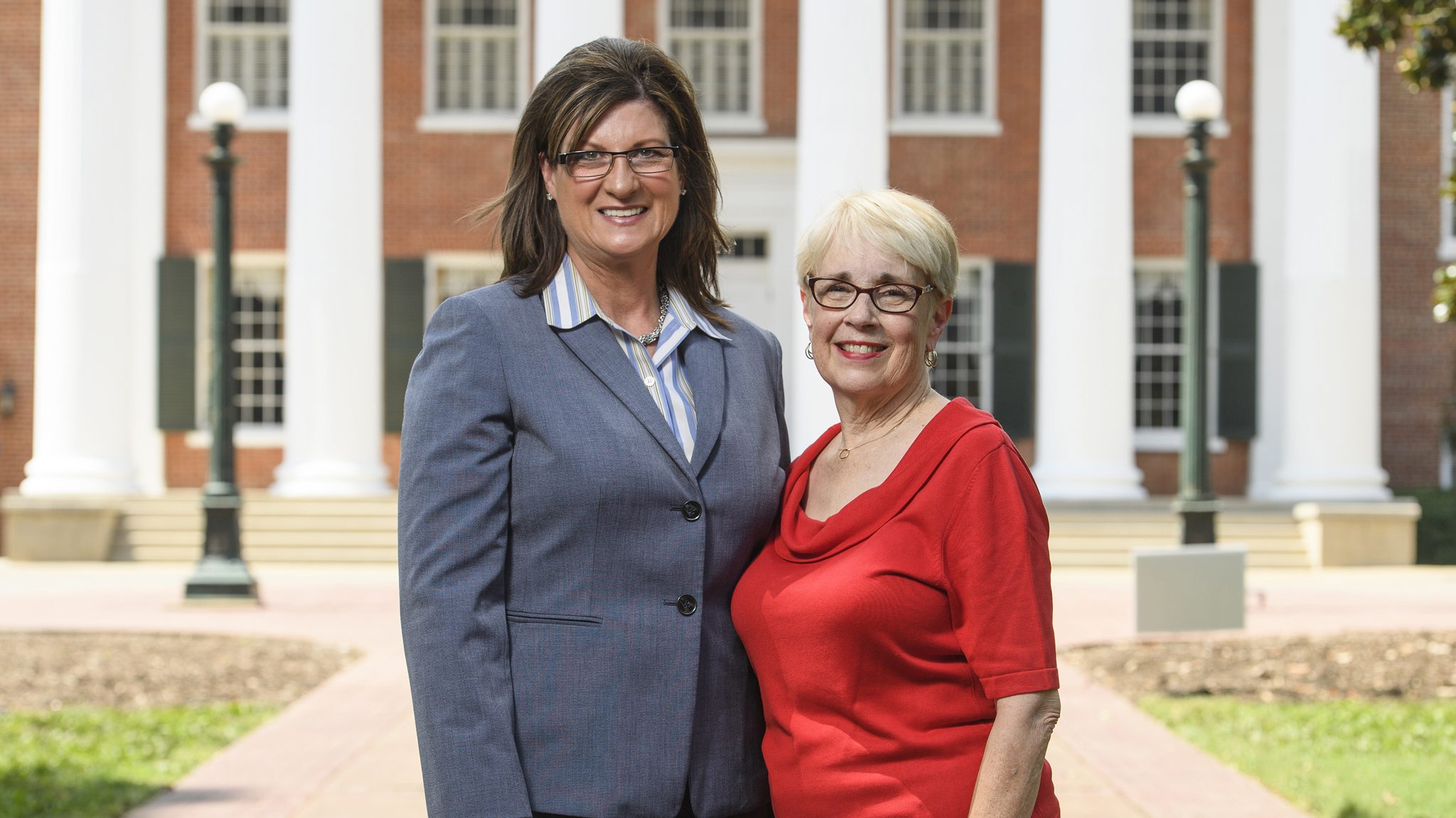
Melody Musgrove (left) and Cathy Grace are co-directors of the Graduate Center for the Study of Early Learning and co-authors of five new research briefs detailing benefits of investing resources into public early childhood education. Photo by Thomas Graning/Ole Miss Digital Imaging Services
OXFORD, Miss. – The Graduate Center for the Study of Early Learning at the University of Mississippi has released a set of five briefs that integrate compelling research from internationally recognized experts in child development, brain science, medicine, economics, and more.
The briefs, co-authored by Cathy Grace and Melody Musgrove, GCSEL co-directors, are designed to enhance the knowledge of Mississippi stakeholders and policy makers on the benefits of investing resources into public early childhood education.
Mississippi does not have a universal pre-K education system. A set of 18 early childhood education collaboratives operated by the state – while evaluated as highly effective – support only a small percentage of Mississippi 4-year-olds.
The reports are:
- “Educating the Youngest: What About Us?”
- “Defining and Implementing a High Quality Early Childhood Education Program”
- “Human Development is Economic Development”
- “What Happens to Young Children Impacts the Developing Brain”
- “Life Experiences and their Impact on Early Brain Development”
“My role at the university and at the Graduate Center for the Study of Early Learning is to inform people about the most updated information that science can provide about development in the early stages of life,” Grace said. “Hopefully, these briefs are a contribution to the overall discussion in the state around early childhood education.”
Much of the research presented in the briefs are connected to a GCSEL speaker series, which took place over the past two years. Recent speakers have included Nobel Prize-winning economist James Heckman, neuroscience researcher Pat Levitt and child development researchers Sharon and Craig Ramey.
“The information presented by all of the researchers shows that what happens in early years of development, especially birth to age 5, is even more important than once thought,” said Musgrove, a UM associate professor of teacher education. “The relationships and experiences of children during this time literally change the way the brain develops in ways that affect behavior, learning, and physical and mental health.”
Each brief provides a synthesized view on how the research relates to Mississippi. For instance, the research shows high-quality birth-to-age-5 programs for disadvantaged children can deliver a 13% per year return on every dollar invested.
Furthermore, the pre-K collaboratives, while recognized nationally for its high quality by meeting nine of 10 benchmarks in a recent assessment, is ranked 41st in the nation in state funding.
“With the briefs, we wanted to focus on the importance of early education prior to public schooling,” Grace said. “Many people are looking toward economic development in the state, and early childhood education is critical to developing the workforce and economy of the future.”
GCSEL seeks to provide informed leadership, research and interdisciplinary collaboration in the field of child development and early education. The center is a component of the School of Education‘s focus on the preparation of teachers of young children.
“Investments in early childhood education pay huge returns in the way of improved school achievement, higher earning potential, better health outcomes, reduced incarceration rates and more,” Musgrove said. “From a financial standpoint; it’s the best investment a state can make because we can change the trajectory of children’s lives in positive ways.”